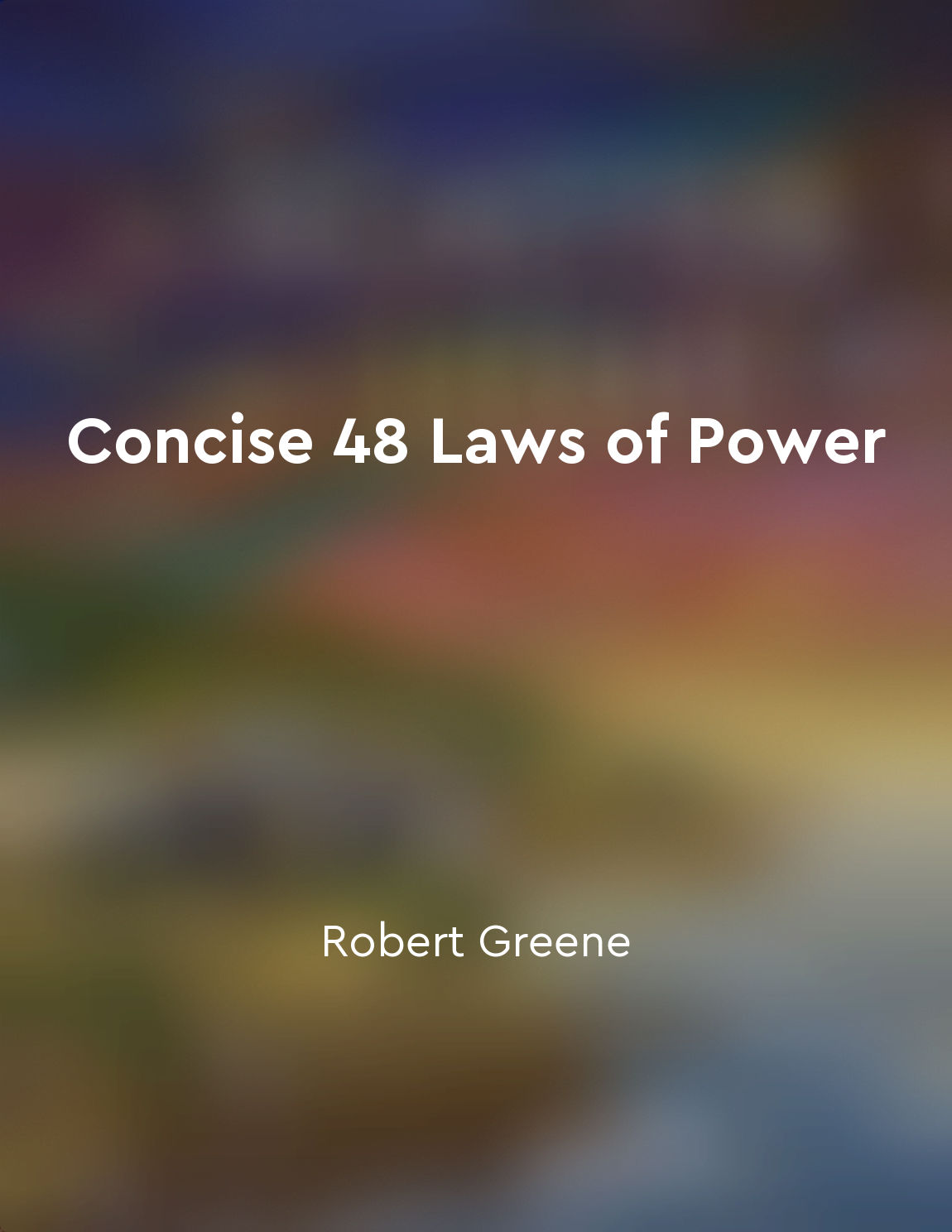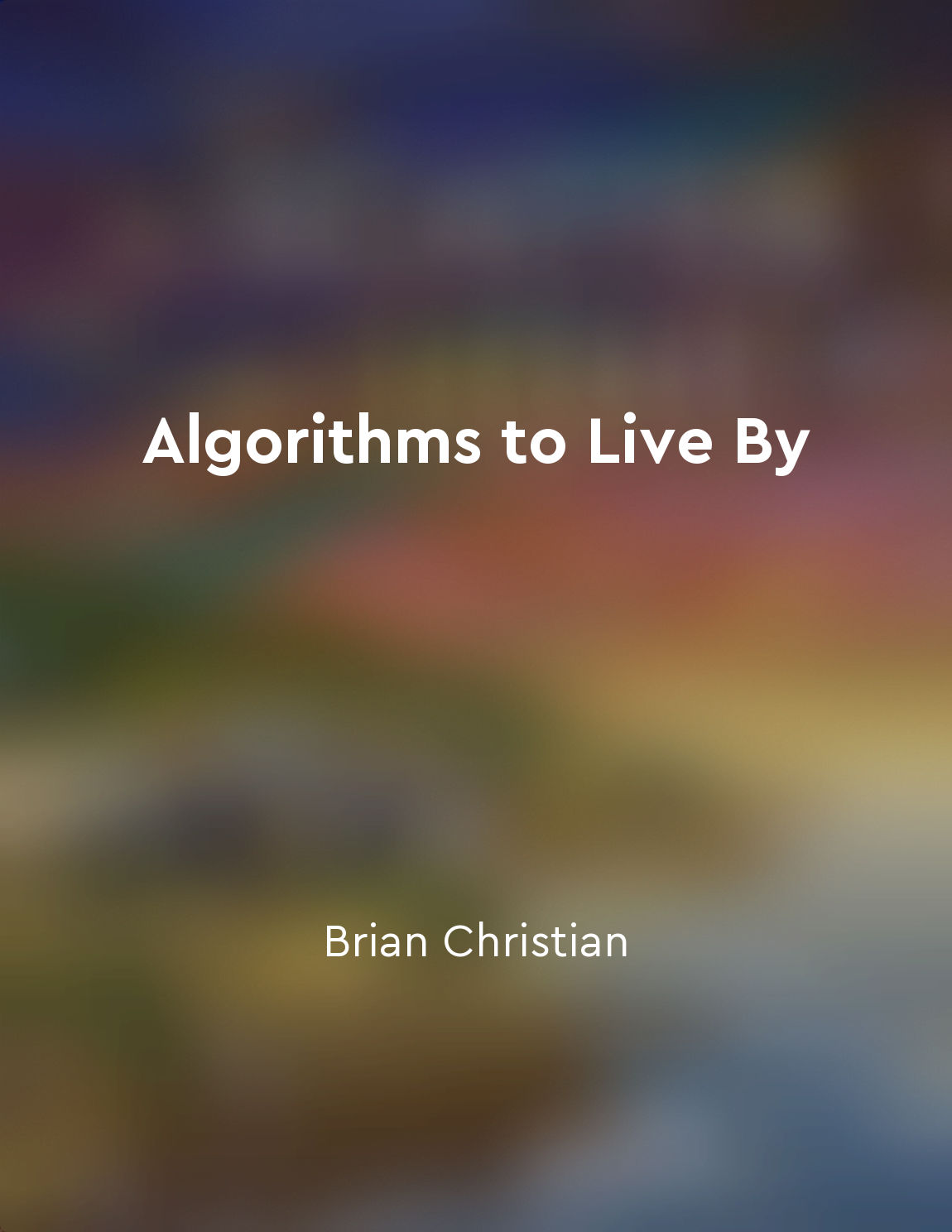The "prisoner's dilemma" teaches us about the importance of cooperation in decisionmaking from "summary" of Algorithms to Live By by Brian Christian,Tom Griffiths
The prisoner's dilemma is a classic example in game theory that illustrates the benefits of cooperation in decision-making. In this scenario, two suspects are interrogated separately for a crime they committed together. If both suspects remain silent, they will each serve a short sentence for a lesser charge. However, if one suspect confesses while the other remains silent, the confessor will go free while the silent suspect serves a longer sentence. If both suspects confess, they will each serve a moderate sentence. The dilemma arises from the fact that each suspect must make a decision without knowing the other's choice. From a purely rational perspective, it may seem advantageous for both suspects to confess, as this guarantees a shorter sentence regardless of the other's choice. However, this self-interested strategy can lead to a suboptimal outcome for both parties. Cooperation, on the other hand, involves trusting the other suspect to remain silent in order to achieve the best overall outcome. By working together and cooperating, the suspects can minimize their total sentence length. This highlights the importance of considering the bigger picture and cooperating with others to achieve mutual benefits.- The prisoner's dilemma can be applied to various decision-making scenarios where individuals must choose between self-interest and cooperation. By understanding the potential benefits of cooperation, individuals can make more informed and strategic decisions that lead to more favorable outcomes for all parties involved. Ultimately, the prisoner's dilemma teaches us that cooperation is essential for maximizing collective gains and fostering positive relationships in decision-making processes.
Similar Posts
Law 18: Do not build fortresses to protect yourself
In the world of power dynamics, the idea of building fortresses to protect oneself may seem like a logical strategy. After all,...
Using storytelling techniques to engage and influence
Storytelling is a powerful tool that can be used to captivate an audience and influence their thoughts and behaviors. By weavin...
Love can blind us to the truth
Love has a way of wrapping itself around us, clouding our judgment and distorting our perceptions. It can create a veil of illu...
Understand the other party's perspective
To reach a successful negotiation, it is critical to understand the other party’s perspective. This involves stepping into thei...

Forgiveness is a powerful tool for reconciliation
Forgiveness has been a topic of debate and discussion for centuries, with many arguing that it is a sign of weakness and others...
Public goods are nonexcludable and non-rivalrous
Public goods are goods that are nonexcludable and non-rivalrous. Nonexcludable means that it is impossible to exclude anyone fr...

Innovation thrives in open environments
The idea that innovation thrives in open environments is a powerful one. It suggests that when individuals are free to exchange...
Crime affects communities on multiple levels
Crime has a way of seeping into every crack and crevice of a community, leaving a trail of destruction in its wake. It is not j...
Desperate measures
Desperate measures are actions taken out of urgency and necessity, often in extreme situations where conventional methods have ...

Use the power of silence to make people listen to you
Silence possesses a power that very few people can resist. When you remain quiet, it can create a sense of unease in others, co...


